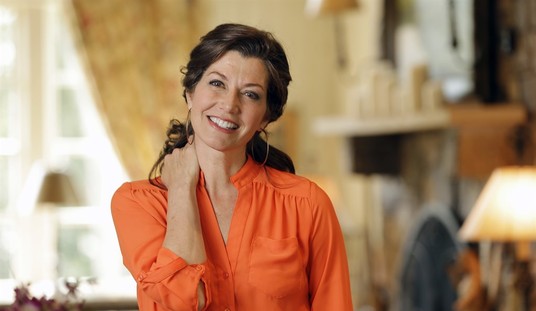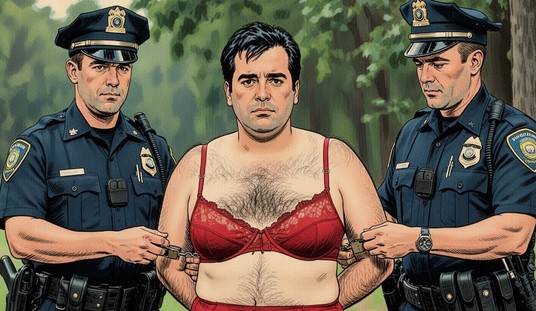Compare and contrast the thoughts of representatives associated with the Reuters news agency on Middle Eastern terrorists with American conservatives. Regarding the former, let’s flashback to Stephen Jukes, then the global news editor for Reuters on September 11th, 2001. As James Taranto wrote:
Stephen Jukes, global news editor for Reuters, the British wire service, has ordered his scribes not to use the word terror to refer to the Sept. 11 atrocity. . . . “We all know that one man’s terrorist is another man’s freedom fighter and that Reuters upholds the principle that we do not use the word terrorist,” Jukes writes in an internal memo. “To be frank, it adds little to call the attack on the World Trade Center a terrorist attack.”
So while a radical terrorist such Osama bin Laden or Khalid Sheikh Mohammed deserve special nuance from Reuters, what about half of the American people? Check out this article from Godfrey Hodgson, in MercatorNet, which describes him as:
“[The former] director of the Reuters’ Foundation Programme at Oxford University, and before that the Observer’s correspondent in the United States and foreign editor of the Independent. His most recent book is The Myth of American Exceptionalism (Yale University Press, 2009).”
And with a C.V. like that, Hodgson’s take on recent American history is just about as reactionary as you’d expect (emphasis in passages below mine):
During the cold-war years, and especially after the disgrace of Senator Joseph McCarthy in 1954, public life in the United States was dominated by what I have called “the liberal consensus”. This does not mean (as conservative commentators occasionally try to suggest) that America was subject to the will of a liberal elite indifferent to the feelings and interests of “ordinary” Americans; it means that the public sphere, and in particular the mood of Congress, was ruled by a vast if unspoken compact in which the different political sides accepted elements of the other’s doctrine.
Thus, most liberals (who could equally be described as social democrats and progressives) shared the conservative, anti-communist ideology of the era; this was as true of the labour unions as it was of the Kennedy administration. At the same time, most conservatives accepted, if often grudgingly, the underlying principles of Roosevelt’s new deal; this could be said of the majority of elected Republicans, and the dominant figures and thinkers in corporate business-management and the law. [This gets history exactly wrong. Most conservatives, whether pre-National Review paleocons such as Albert J. Nock, or proto-libertarians such as Ayn Rand and even H.L. Mencken did not accept, grudgingly or otherwise the New Deal. And the Republicans of the time in office were “me too” Rockefeller liberals, until Barry Goldwater and then Reagan began making inroads in the 1960s. — Ed]
The Kennedy-Johnson years saw many “outliers” to both left and right: union leaders, black leaders, intellectuals on the left, and old Taftite or new Goldwaterite conservatives. But it is possible to speak, without doing violence to the truth, of a liberal consensus in American public philosophy in the period. In broad terms, Americans accepted social-democratic government and a mixed economy at home and the containment of communism as the chief principle of foreign policy.
Since 1968, everything has changed – in such a way that the world in which Lyndon Johnson could dominate the political scene has disappeared into the “urns and sepulchres of mortality”.
Before 1965, each of the two parties that dominated American politics was a coalition of ideologically and demographically distinct elements. The division between them was rooted in the events of the 1860s: civil war, the emancipation of the slaves, the reconstruction of the south and its ending. The legacy of these events was that the core cleavage in American party politics was not a straightforward left-right one.
But since Richard Nixon’s years in power (1968-74), [even though Nixon governed domestically as an extension of LBJ’s Great Society? — Ed] and even more since Ronald Reagan’s (1980-89), the division between the parties has become as ideological – and as much a conflict between “haves” and “have-nots” – as in Europe. The pivot was the events of the 1960s: the civil-rights struggles, the Vietnam war, the early women’s movement, and the decade’s social libertinism.
* * *
The large shift in the intellectual history of the United States in the late 20th century continued as conservative ideas advanced in the law schools and eventually the Supreme Court. The court, once controlled by a liberal majority that accepted the doctrine of social activism inherited from Oliver Wendell Holmes and Louis D Brandeis, came to acquire a more or less reliable five-to-four permanent majority on the right. A single example can stand for many: the Buckley vs Valeo judgment in 1974, which held that political ads were free speech and thus protected by the first amendment to the constitution. This ended attempts to reform the electoral-finance system.
Perhaps even more important in America’s large-scale move to the right was the changing profile of the news industry. The fashionable depiction of a liberal media establishment had always been exaggerated; the majority of journalists may long have been liberals, but most of their bosses were always conservatives. [So what? This is a variation on the Folk Marxist trope that all businesses are conservative. — Ed] If the news media had once sustained the “liberal consensus”, however, there has been a steady change over the last half century in the direction of more variety and then more conservatism. [Sure. Just look at their voting records. — Ed]
A few landmarks indicate the trend. William F Buckley’s founding of the National Review in 1955 broke the monopoly of liberalism in the intellectual magazines. Robert Bartley’s promotion to head of the editorial page of the Wall Street Journal in 1972 (for which he had worked since 1964) allowed him to make it the vehicle of undiluted conservative propaganda. [Only in the editorial section. — Ed] Between the the mid-1980s and mid-1990s, the three television networks found their New-York-liberal tone gradually diluted – first by the appearance of cable (albeit the pioneering Atlanta-based CNN was relatively liberal), then by the foundation of Fox News, owned by Rupert Murdoch and controlled by Richard Nixon’s spin-doctor Roger Ailes. [Until Fox News came along, how exactly did cable TV in and of itself “dilute” the monolithic liberal nature of the Legacy Media, since, as Hodgson acknowledges, CNN was and is liberal. — Ed]
The result of this overall social and intellectual progression (or regression) has been a profound change in the United States’s ideological weather. The difference helps to explain why Lyndon Johnson could preside over a monsoon of liberal legislation that completed and in some ways transcended the achievements of his hero Franklin Roosevelt, whereas Barack Obama’s more modest reform efforts have become mired in frustration amid bitter polarisation and populist resurgence.
President Obama reached office on the promise of changing America. But the country had already changed. It is time to shift attention from the individual personality and specific failures of the president to what has happened to the United States’s public philosophy and its political-media climate.
So there you have it. In the morally inverted world of Reuters, Osama bin Laden could be a terrorist…or he could be a freedom fighter! (Tell that to those who died on 9/11, or those whom Al Qeada and the Taliban would return to a Stone Age lifestyle.)
But those conservatives seeking to be free from statism in America represent “regression”, not to mention “bitter polarisation and populist resurgence”, ginned up by Rupert Murdoch, the English left’s favorite boogieman, and “controlled by Richard Nixon’s spin-doctor Roger Ailes.”
Great job, Reuters. I’d suggest picking up a few extra gallons of condescension from the company store, but I doubt you’ll run out anytime soon. Or as Theodore Dalrymple notes on the Pajamas homepage, “Our Contemporary Sanctimony Puts the Victorians to Shame.”
(H/T: The Brothers Judd.)
Update: ABC’s Peter Jennings had a worldview quite similar to Reuters. Evidently the network believes such an anti-American, pro-Middle Eastern tone has been lacking since his untimely passing, something they plan to rectify shortly.









Join the conversation as a VIP Member